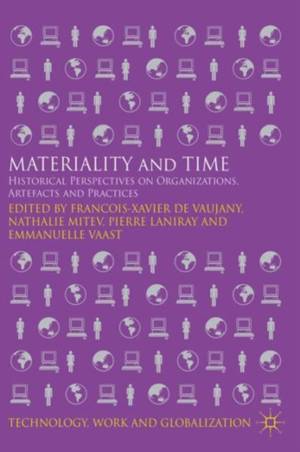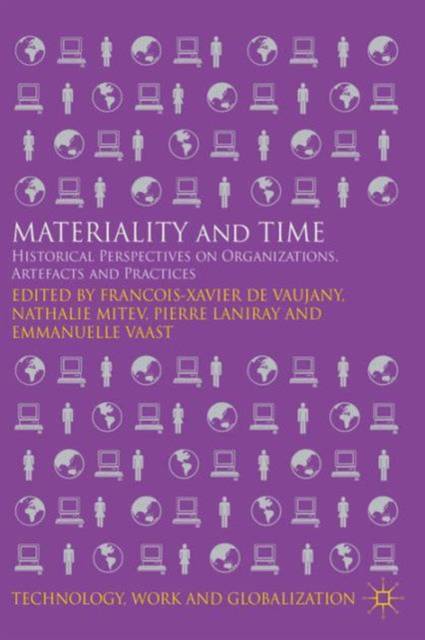
- Afhalen na 1 uur in een winkel met voorraad
- Gratis thuislevering in België vanaf € 30
- Ruim aanbod met 7 miljoen producten
- Afhalen na 1 uur in een winkel met voorraad
- Gratis thuislevering in België vanaf € 30
- Ruim aanbod met 7 miljoen producten
Zoeken
Materiality and Time
Historical Perspectives on Organizations, Artefacts and Practices
€ 167,95
+ 335 punten
Omschrijving
Sociomaterial research overcomes the dichotomy between social and material worlds by concentrating on organizational practices. These practices are constituted by, but also produce, material and social dynamics. This research is currently having an important impact in management studies and adopts a subjective investigation of time to explore materiality and materialization. Studying the institutional evolution of an organization implies long time spans and it is shown more clearly through the inclusion of material traces of past actions.
Materiality and Time is split into three parts: Part I explores how time is materialized and performed in organizations, i.e. how artefacts and material space perform time and temporal dynamics in organizations. Part II examines how organizations and organizational members are constituted by and constitutive of material artefacts. Part III reflects on what a historical perspective on these materializations can bring to the study of organizations. Contributions focus on the materialization of time and the material dynamic of organizations.
Materiality and Time is split into three parts: Part I explores how time is materialized and performed in organizations, i.e. how artefacts and material space perform time and temporal dynamics in organizations. Part II examines how organizations and organizational members are constituted by and constitutive of material artefacts. Part III reflects on what a historical perspective on these materializations can bring to the study of organizations. Contributions focus on the materialization of time and the material dynamic of organizations.
Specificaties
Betrokkenen
- Uitgeverij:
Inhoud
- Aantal bladzijden:
- 247
- Taal:
- Engels
- Reeks:
Eigenschappen
- Productcode (EAN):
- 9781137432100
- Verschijningsdatum:
- 30/09/2014
- Uitvoering:
- Hardcover
- Formaat:
- Genaaid
- Afmetingen:
- 165 mm x 242 mm
- Gewicht:
- 598 g

Alleen bij Standaard Boekhandel
+ 335 punten op je klantenkaart van Standaard Boekhandel
Beoordelingen
We publiceren alleen reviews die voldoen aan de voorwaarden voor reviews. Bekijk onze voorwaarden voor reviews.






